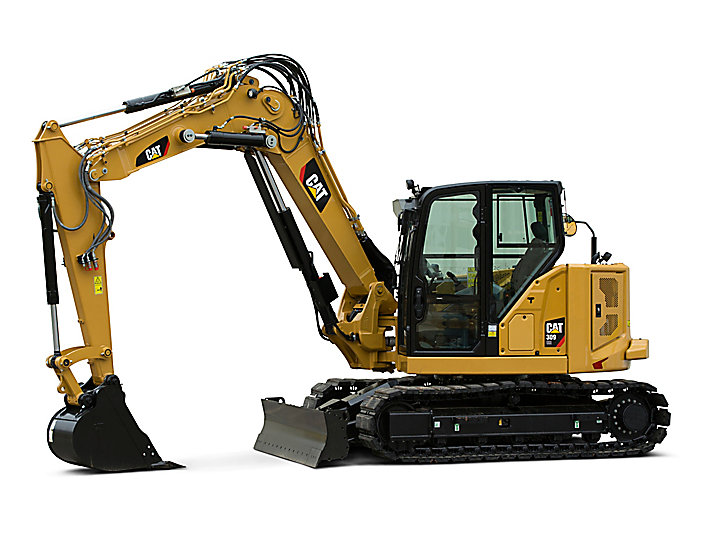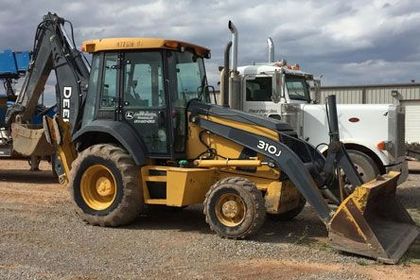A Comprehensive Guide to the Various Sorts Of Oil Field Equipment and Pipeline Equipment Available
The oil and gas market relies heavily on customized devices for reliable extraction and transportation. Different types of equipment, from piercing rigs to tank, play crucial roles in this intricate process. Each piece of equipment serves distinctive features that contribute to overall operational success. Comprehending these elements is necessary for anybody included in the market. As the industry progresses, so too do the innovations that sustain it. What improvements are on the horizon?

Drilling Rigs: The Foundation of Oil Expedition
Drilling rigs offer as the necessary equipment in the domain of oil exploration, making it possible for companies to gain access to hydrocarbon reserves hidden deep beneath the Earth's surface. These rigs come in different types, consisting of land rigs, offshore rigs, and mobile devices, each made to operate in particular settings. Furnished with advanced modern technology, drilling rigs can pass through geological developments with precision, ensuring efficient resource extraction. The architectural honesty and functional abilities of these rigs are critical, as they should endure severe conditions and significant stress. Additionally, the selection of a drilling gear influences the general job expense and timeline, making it an important consideration for oil business looking for to optimize their exploration efforts and optimize productivity in their operations.
Pumps: Vital for Liquid Activity
In the oil extraction process, the role of pumps is substantial, facilitating the activity of liquids throughout different stages of manufacturing. Pumps are important for moving petroleum, water, and other liquids from below ground tanks to the surface area and after that through pipes to refineries. They come in various types, including centrifugal, favorable variation, and submersible pumps, each serving certain functions based upon the liquid characteristics and functional requirements. Centrifugal pumps are generally used for their effectiveness in high-flow applications, while positive variation pumps master dealing with viscous fluids. The option of pump influences general performance, operational safety, and maintenance expenses. Appropriate choice and upkeep of pumps are crucial for maximizing manufacturing and reducing downtime in oil field procedures.
Valves: Managing Flow and Pressure

Valves play a vital role in handling the flow and pressure of liquids within oil fields and pipes. Numerous sorts of valves serve unique applications, each made to meet certain features basic for reliable procedure - Superior rentals squeeze tools. Comprehending the qualities and uses of these valves is important for enhancing system efficiency and security
Kinds of Valves
Vital components in oil area operations, shutoffs play an essential function in controlling the circulation and pressure of fluids within pipes and tools. Numerous sorts of valves are made use of to satisfy the varied needs of oil and gas manufacturing. Common types include gate shutoffs, which supply a straight-line circulation and minimal stress decline; world valves, known for their throttling capabilities; and ball shutoffs, acknowledged for their quick on/off control. Furthermore, check shutoffs prevent heartburn, while butterfly shutoffs use a light-weight service for regulating circulation. Each shutoff kind is developed with certain materials and arrangements to endure the harsh conditions usually located in oil fields, ensuring integrity and efficiency in procedures. Comprehending these kinds is important for effective system administration.
Valve Applications and Functions
While numerous sorts of valves offer unique purposes, their primary applications rotate around controlling flow and stress within oil and gas systems. Shutoffs such as gate, world, and round shutoffs regulate liquid motion, guaranteeing peak performance and safety and security. Entrance shutoffs are frequently utilized for on/off control, offering minimal flow discover this info here resistance. Globe valves, on the various other hand, offer precise flow policy, making them suitable for throttling applications. Ball valves are favored for their fast procedure and limited sealing capabilities. On top of that, stress safety valve are vital for stopping system overpressure, safeguarding devices integrity. On the whole, the appropriate option and application of shutoffs enhance operational effectiveness, guaranteeing the reliable transportation of oil and gas via pipes and processing centers.
Compressors: Enhancing Gas Transportation
Compressors play an essential duty in the effective transport of gas, making certain that it relocates smoothly via pipes over fars away. These devices boost the pressure of gas, allowing it to get rid of friction and elevation changes within the pipeline system. Additionally, compressors promote the harmonizing of supply and need, suiting fluctuations in consumption and production rates. Various kinds of compressors are utilized in the Resources industry, including centrifugal, reciprocating, and rotating screw compressors, each offering distinctive advantages based upon the functional needs. Regular maintenance of these compressors is important to make best use of efficiency and reduce downtime, eventually adding to a trustworthy gas transportation network. Their important function emphasizes the importance of compressors in the total oil and gas infrastructure.
Storage Tanks: Safe and Effective Liquid Management
Effective transportation of gas relies upon various support group, one of which is the correct administration of tank. These containers play a vital function in safely including liquids, making sure that functional efficiency is preserved while lessening ecological threats. Created from resilient materials, they are created to withstand high pressures and harsh elements. Properly sized and purposefully situated, tank promote the smooth flow of gas and various other liquids, stopping traffic jams in supply chains. Regular maintenance and monitoring are imperative to detect leaks or architectural concerns, advertising security and compliance with governing criteria. Ultimately, the reliable administration of tank is important for the overall stability and reliability of the oil and gas industry's liquid handling systems.
Pipeline Systems: Infrastructure for Transportation
Pipeline systems work as the foundation of the oil and gas sector, promoting the effective transport of hydrocarbons over substantial ranges. These systems contain numerous components, consisting of pipes, valves, pumps, and compressors, all carefully developed to assure smooth circulation. The materials used in pipeline construction, commonly steel or high-density polyethylene, are chosen for resilience and resistance to deterioration. Pipeline networks can extend throughout land and water, attaching manufacturing sites to refineries and warehouse. Additionally, advanced innovation enables real-time tracking of flow rates and pressure levels, enhancing operational performance. The strategic positioning of these pipelines minimizes environmental effect while making best use of source ease of access, therefore playing an important role in conference energy needs internationally.
Security Equipment: Guaranteeing Worker and Environmental Defense
The operation of pipeline visit this page systems, while necessary for energy transport, additionally presents substantial safety difficulties for employees and the environment. Security devices plays a substantial duty in alleviating these threats. Individual safety equipment (PPE) such as helmets, handwear covers, and non-slip footwear safeguards workers from physical risks. In addition, gas detection systems keep an eye on for leaks, making certain that unsafe compounds do not posture a risk to workers or the surrounding environment. Emergency shutdown systems are important for promptly stopping procedures throughout a dilemma, preventing potential disasters. Spill containment materials, including absorbents and obstacles, are essential for decreasing ecological effect. In general, purchasing all-inclusive safety and security devices is crucial for preserving operational integrity and securing both workers and the setting in the oil and gas sector.

Often Asked Questions
Exactly how Do I Pick the Right Oil Field Equipment for My Task?
Selecting the best oil field devices involves reviewing project specs, budget plan restraints, and operational needs. Consider elements such as equipment reliability, compatibility with existing systems, and the supplier's track record to ensure peak efficiency and security.
What Are the Upkeep Demands for Oil Field Equipment?
Maintenance demands for oil field devices include regular assessments, lubrication, and prompt repairs. Operators should additionally adhere to maker standards, monitor performance metrics, and guarantee conformity with safety guidelines to boost long life and efficiency.

Just How Can I Ensure Conformity With Environmental Laws?
To assure conformity with environmental guidelines, companies have to perform routine audits, implement ideal techniques, buy training, maintain proper documentation, and remain upgraded on legislation (Superior Rentals reviews). Partnership with ecological firms can also enhance adherence to regulations
What Is the Typical Lifespan of Pipeline Equipment?
The average life expectancy of pipeline equipment usually ranges from 20 to 50 years, relying on aspects such as worldly high quality, ecological conditions, and upkeep methods. Routine examinations can considerably influence longevity and functional performance.
Exactly how Do I Securely Transport Oil Field Equipment to Remote Locations?
Carrying oil field tools to remote locations needs mindful preparation, consisting of route assessment, securing licenses, using appropriate vehicles, and ensuring safety and security methods are complied with. Correct training and interaction among teams are important for effective transportation.